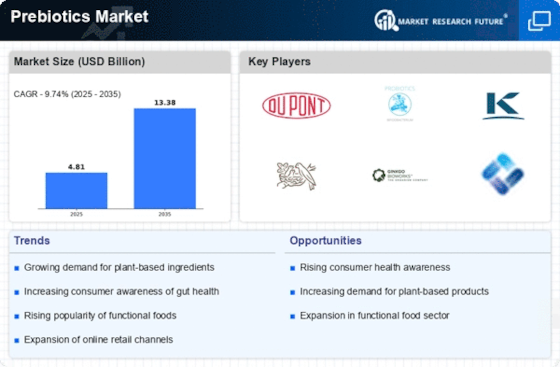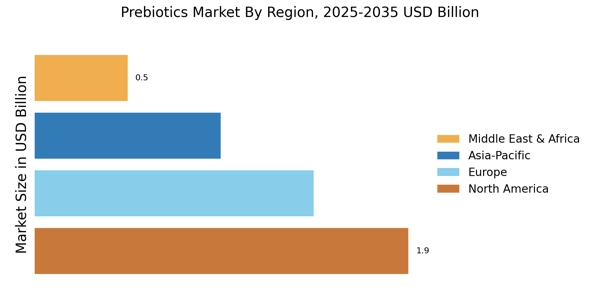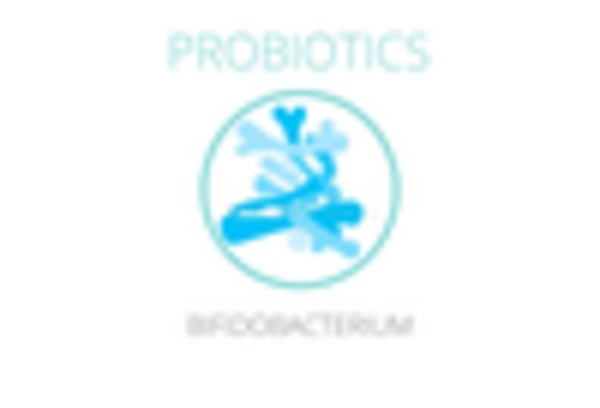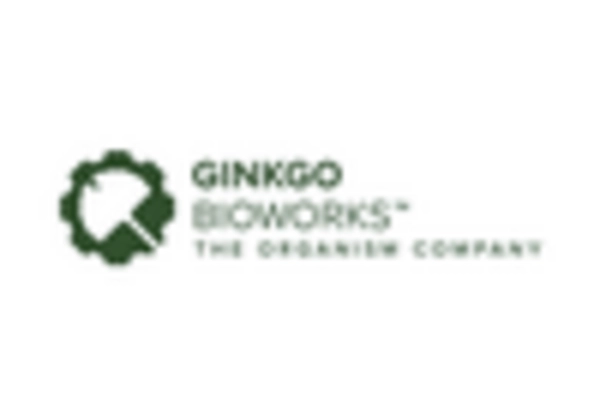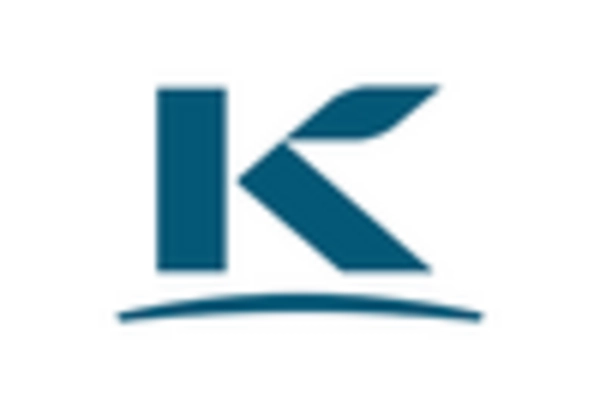Health Benefits of Prebiotics
The increasing recognition of the health benefits associated with prebiotics appears to be a primary driver in the Prebiotics Market. Research indicates that prebiotics can enhance gut health, improve digestion, and boost the immune system. As consumers become more health-conscious, they are actively seeking products that promote overall well-being. The demand for functional foods containing prebiotics is on the rise, with the market projected to reach USD 7.5 billion by 2026. This trend suggests that manufacturers are likely to invest in developing innovative prebiotic products to cater to the growing consumer base.
Regulatory Support and Guidelines
Regulatory bodies are increasingly recognizing the importance of prebiotics in nutrition, which is positively influencing the Prebiotics Market. Guidelines and recommendations from health organizations are promoting the inclusion of prebiotics in dietary plans. This regulatory support is likely to enhance consumer trust and encourage manufacturers to incorporate prebiotics into their products. As a result, the market is expected to witness a steady growth trajectory, with an anticipated increase in product launches that comply with these guidelines. This trend indicates a favorable environment for the expansion of prebiotic offerings.
Growing Demand for Functional Foods
The Prebiotics Market is experiencing a surge in demand for functional foods, which are perceived to offer health benefits beyond basic nutrition. This trend is driven by consumers' increasing interest in maintaining a healthy lifestyle and preventing chronic diseases. According to recent data, the functional food market is expected to grow at a CAGR of 8.5% over the next five years. Prebiotics Market, as a key ingredient in these products, are becoming essential for manufacturers aiming to meet consumer expectations. This growing demand is likely to encourage further research and development in prebiotic formulations.
Rising Popularity of Plant-Based Diets
The shift towards plant-based diets is emerging as a significant driver in the Prebiotics Market. As more consumers adopt vegetarian and vegan lifestyles, the demand for plant-derived prebiotics is likely to increase. Plant-based sources of prebiotics, such as chicory root and garlic, are gaining traction among health-conscious individuals. Market analysis suggests that the plant-based food sector is projected to grow at a CAGR of 10% over the next five years. This trend indicates a potential for prebiotic products that align with plant-based dietary preferences, thereby expanding market opportunities.
Technological Advancements in Production
Technological advancements in the production of prebiotics are playing a crucial role in shaping the Prebiotics Market. Innovations in extraction and processing techniques are enhancing the efficiency and quality of prebiotic ingredients. These advancements are likely to lower production costs and improve product availability, making prebiotics more accessible to consumers. Furthermore, the integration of technology in product development is expected to lead to the creation of novel prebiotic formulations that cater to diverse consumer needs. This evolution in production technology may significantly impact market dynamics in the coming years.


